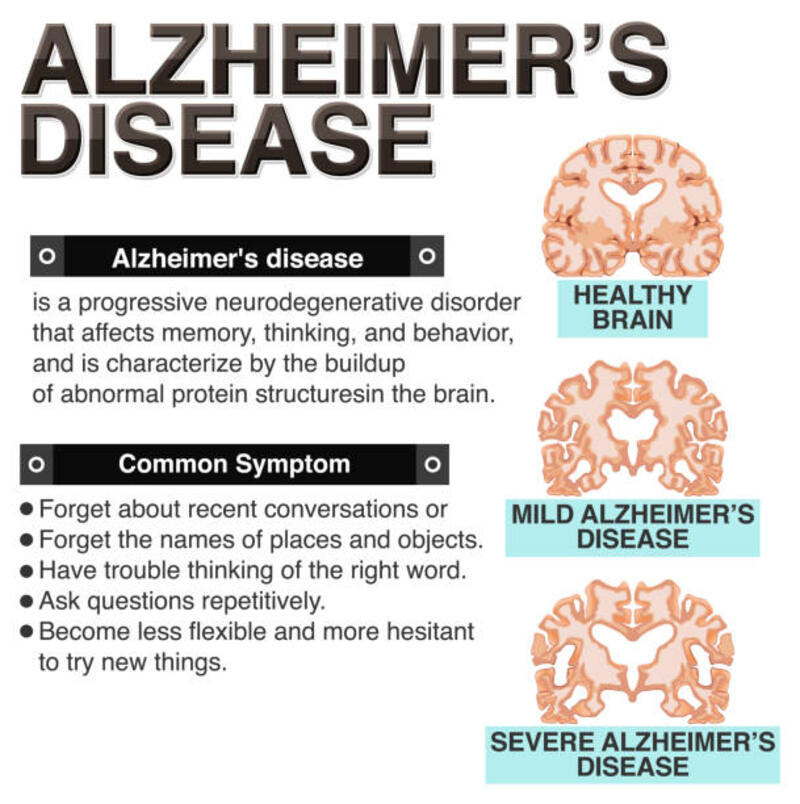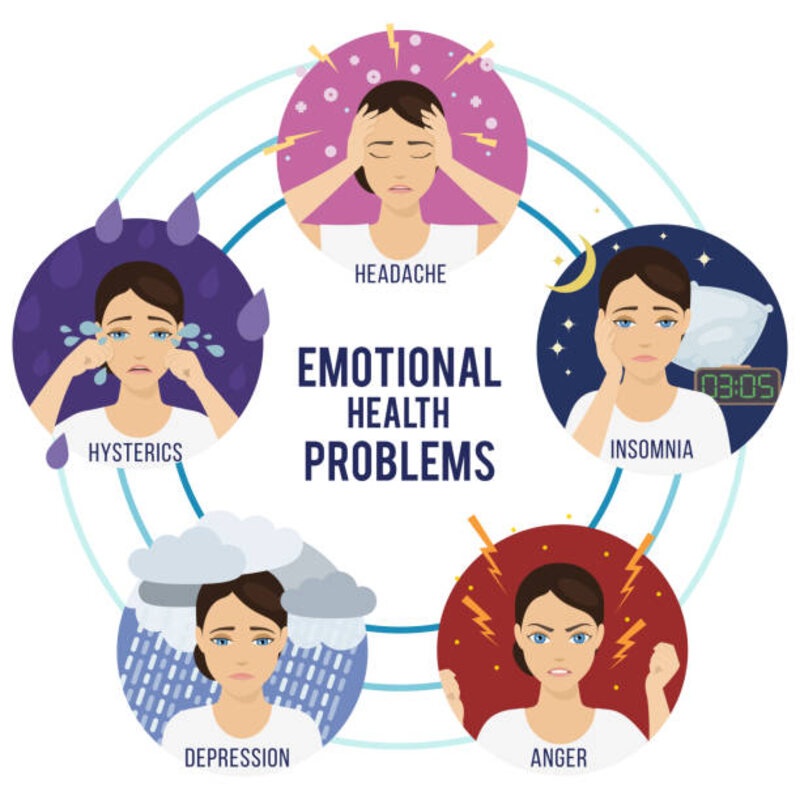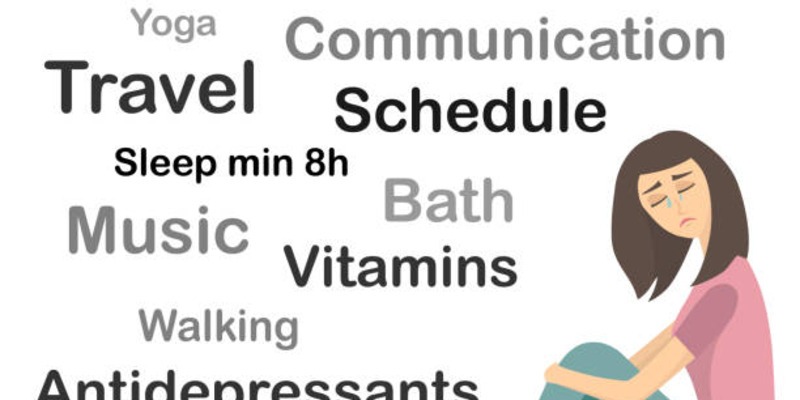Are you struggling with abnormal anxiety and fear that feels like it’s controlling your life? Or do you know someone who is having difficulty managing the stress of daily life? Anxiety disorders affect 40 million Americans each year, making them one of the most common mental health issues. This comprehensive guide aims to provide insight into what anxiety actually looks like, how it is diagnosed, and helpful strategies for recovery. We'll explore different types of anxiety - including generalized anxiety disorder (GAD), social phobia (SAP), obsessive-compulsive disorder (OCD), post-traumatic stress disorder (PTSD) - as well as offer practical tips on lifestyle adjustments and therapy options available to manage symptoms and improve quality of life.
Overview of Anxiety Disorders - Types, Causes and Symptoms:
Anxiety disorders encompass a range of mental health conditions characterized by fear, worry, and apprehension that hinder one's ability to lead a normal life. Anxiety can manifest as a slight uneasiness or escalate to debilitating panic attacks. It's important to note that while these emotions are unpleasant, they are not inherently dangerous. However, when left unaddressed, anxiety can escalate to a point where it significantly impacts one's daily existence.
There are various anxiety disorders with distinct underlying causes, namely generalized anxiety disorder (GAD), social phobia (SAP), obsessive-compulsive disorder (OCD), post-traumatic stress disorder (PTSD), and panic disorder. Anxiety is often accompanied by symptoms such as heightened stress, restlessness, sleep difficulties, heart palpitations, a constant feeling of being on edge, and trouble concentrating. If you experience these symptoms, it may be beneficial to seek professional assistance to effectively manage them.
Diagnosing Anxiety Disorders:

The process of diagnosing an anxiety disorder starts with a thorough physical examination and review of medical history. The doctor may also inquire about your current symptoms and any past experiences that might have contributed to them. Following this initial evaluation, the doctor will likely refer you to a mental health specialist for further assessment. The specialist may employ various diagnostic methods, such as cognitive-behavioral therapy, psychotherapy, and/or medication, to accurately diagnose the anxiety disorder. Cognitive-behavioral therapy (CBT) is an effective treatment for anxiety.
It helps you recognize and challenge negative thought patterns that might contribute to your symptoms. Psychotherapy involves discussing your thoughts, emotions, and behaviors with a therapist to gain a deeper understanding of them. Medication can also assist in managing anxiety, so it's important to consult your doctor or psychiatrist for further discussion.
Treating Anxiety Disorders:
The most effective approach to anxiety treatment involves a combination of lifestyle adjustments, coping strategies, and professional assistance. Lifestyle adjustments may include regular physical activity, a healthy diet, reduced caffeine intake, sufficient restful sleep, and avoidance of triggers that exacerbate symptoms. Coping strategies such as mindfulness and relaxation techniques can help alleviate both the physical and mental symptoms associated with anxiety. Seeking professional help, such as therapy or medication, may be necessary depending on the severity of the condition.
Developing a Self-Care Plan to Manage Anxiety:

Learning to manage your anxiety in a healthy and effective way is key to improving your quality of life. Developing a self-care plan can help you to do this by providing an actionable roadmap that outlines which activities, strategies, and treatments work best for you. Start by thinking about the triggers that set off anxious feelings and consider ways you can address each one. It look for activities and strategies that provide a sense of relaxation and peace. Exercise, yoga, or meditation are great options to help you manage your mental health. Finally, don’t be afraid to ask for help from family and friends if needed. No matter how severe your anxiety may be, it is possible to find relief by taking the right steps. With the right plan in place, you can find freedom from fear and worry and take back control of your life.
Finding Support – Talking to Family and Friends:
Having a strong support system is crucial when it comes to managing anxiety and other mental health issues. It’s important to reach out for help from family and friends who can provide emotional support and understanding. If you don't feel comfortable talking with loved ones, consider joining an online or in-person support group to connect with others who are struggling with similar issues. These groups are filled with individuals who understand what it’s like to live with anxiety, and they can provide a safe space to share your experiences.
Making Healthy Lifestyle Changes to Reduce Stress Levels:
Implementing healthy lifestyle changes can have a profound impact on reducing stress levels and enhancing overall wellbeing. Research consistently demonstrates that engaging in regular physical activity, maintaining a balanced diet, prioritizing sufficient sleep, and carving out time for self-care each day all contribute to alleviating anxiety. Furthermore, cultivating healthier coping mechanisms such as journaling or seeking therapy can also yield significant benefits. Remember, mental health is just as crucial as physical health, so never hesitate to seek support when needed.
Conclusion:
Living with anxiety can be difficult, but it is possible to find relief. With the right plan in place, you can take back control of your life and find freedom from fear and worry. Developing a self-care plan and finding support from family and friends are key steps towards managing your anxiety. Additionally, making healthy lifestyle changes such as engaging in regular physical activity, eating a balanced diet, and getting enough restful sleep can help to reduce stress levels and improve your overall wellbeing. With the right treatment plan, you can live an anxiety-free life.
FAQs:
What treatments are available for anxiety?
The most effective approaches to managing anxiety involve lifestyle adjustments, coping strategies, and professional help. Lifestyle adjustments may include engaging in regular physical activity, following a healthy diet, reducing caffeine consumption, getting enough restful sleep, and avoiding triggers that might worsen symptoms. Coping strategies such as mindfulness and relaxation techniques can help to reduce the physical and mental symptoms associated with anxiety, while professional help may involve therapy or medication depending on the severity of your condition.
How can I find support for my anxiety?
Answer: Having a strong support system is crucial when it comes to managing anxiety and other mental health issues. It is important to reach out for help from family and friends who can provide emotional support and understanding. If you don't feel comfortable talking with loved ones, consider joining an online or in-person support group to connect with others who are struggling with similar issues. These groups are filled with individuals who understand what it’s like to live with anxiety, and they can provide a safe space to share your experiences.
What can I do to reduce stress levels?
Answer: Making healthy lifestyle changes can help to reduce stress levels and improve your overall wellbeing. Research shows that engaging in regular physical activity, eating a balanced diet, getting enough sleep, and taking time for yourself each day can all contribute to reducing anxiety. Additionally, developing healthier coping mechanisms such as journaling or talking with a therapist can also be beneficial. Remember that mental health is just as important as physical health, so don’t be afraid to reach out for help if needed.




